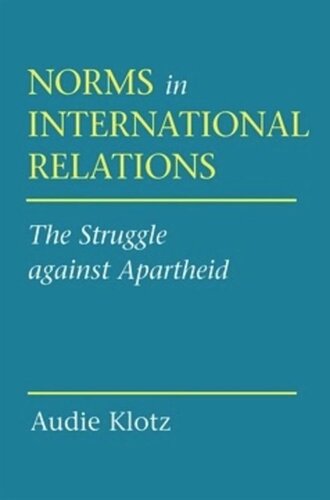

Most ebook files are in PDF format, so you can easily read them using various software such as Foxit Reader or directly on the Google Chrome browser.
Some ebook files are released by publishers in other formats such as .awz, .mobi, .epub, .fb2, etc. You may need to install specific software to read these formats on mobile/PC, such as Calibre.
Please read the tutorial at this link: https://ebookbell.com/faq
We offer FREE conversion to the popular formats you request; however, this may take some time. Therefore, right after payment, please email us, and we will try to provide the service as quickly as possible.
For some exceptional file formats or broken links (if any), please refrain from opening any disputes. Instead, email us first, and we will try to assist within a maximum of 6 hours.
EbookBell Team

5.0
68 reviewsApplying a social-constructivist approach to her richly detailed case history, Audie Jeanne Klotz demonstrates that normative standards such as racial equality can serve as much more than a weak constraint on fundamental strategic concerns. Norms can play a crucial role in the formation of global policy. After forty years of protest against apartheid, the world celebrated Nelson Mandela's inauguration as South Africa's first democratically elected president. Klotz considers why racial discrimination in South Africa became a global concern and why—in a remarkable change of practice—nations and international organizations adopted sanctions against the Pretoria regime. By explaining how the world community actively came to condemn apartheid, Norms in International Relations contributes to broader debates on the role of norms in global politics. Klotz rehearses a fascinating history, combining the power politics of economic sanctions and the normative politics of racial equality. She reenacts the events that resulted in the United Nations decision to oppose apartheid. The author also analyzes anti-apartheid activism in the British Commonwealth and in the Organization of African Unity, and she documents changing attitudes toward South African racial separateness in the United States, Britain, and Zimbabwe.